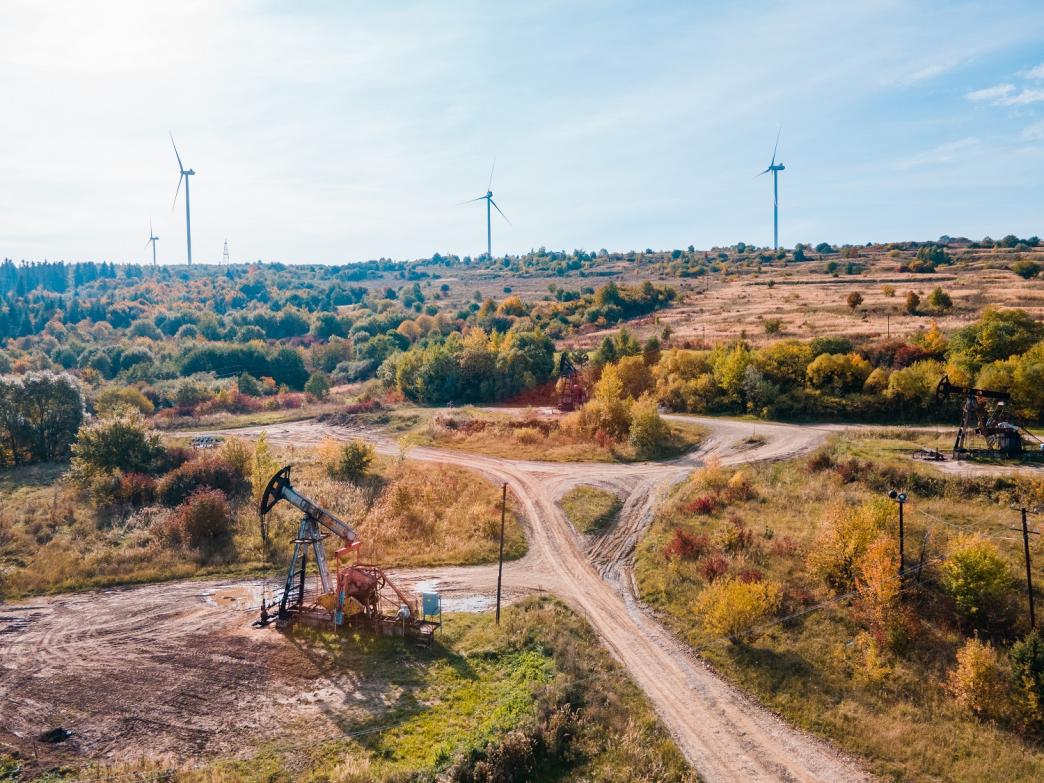
Three Steps Toward an Equitable Energy Transition
When the curtain falls on COP26, a raft of action plans, pledges, compacts, coalitions and statements will have been announced. As “action-forcing moments,” these initiatives matter. But the choices made in countries around the world the other 50 weeks of the year, by actors ranging from national oil company officials and finance ministers to investors and activists, will equally determine the future for people and the planet.
Much of the spotlight in Glasgow is on promised cuts to fossil fuel consumption. Yet supply must also fall if we are to avoid catastrophe—the world needs to produce less oil, gas and coal starting now. Nearly two-thirds of already-discovered oil and gas would have to stay in the ground to keep within 1.5°C, and at current production levels, we’ll spend the global carbon budget by around 2030.
Each and every fossil fuel-producing country should support action on climate change for a simple reason: they are all vulnerable to it, and none more so than developing countries in the tropics. Yet an abrupt end to production would upend economic and political life in many of these countries, especially where leaders and citizens have staked their aspirations on getting more out of the ground.
At NRGI we believe that, at a minimum, wealthier, higher-emitting producers that have benefitted the most from extraction should wind down first and fastest. They should also make the deepest production cuts. Most lower-income producers have small carbon footprints, as well as pressing development and energy challenges. Pressuring them to wind down faster is economically unfair and morally unjustifiable.
The world cannot wait for wealthy nations to “lead” on fossil fuel production cuts. Many haven’t even acknowledged the limits of their moral authority on the topic, especially when toxic politics are stalling their own energy sector clean-ups. While the U.S., U.K., Canada and others just pledged to end financing for fossil fuel projects in low-income countries, G20 countries have poured $300 billion in new public money into fossil fuels since the pandemic started. Some countries—like the U.S., Canada and Australia—take the stage at events like COP to preach hard choices they won’t make for themselves. This sows mistrust and division, and complicates progress toward consensus.
In this tough political climate, we need solutions that don’t require a grand bargain. G20 countries must first honor their climate finance promises; supporting lower-income, fossil-dependent producing countries to transition to a post-oil, -gas or -coal economy is a critical complement. This includes investing in natural resource governance, which offers a road map to support quicker, fairer energy transitions for fossil fuel and mineral producers.
Here are three priorities that policy makers, activists and the international community must advance:
Increase dialogue and transparency around emissions and national economic risks from fossil fuel projects.
With a billion people already living in poverty in resource-rich developing countries, the stakes for adaptation and transition are high; yet fossil fuels represent one of the few avenues for much needed revenues for recovery and sustainable development. As a result, as demand wanes, some leaders will support costly, questionable handouts to extractives companies. Others with less altruistic aims will push through polluting, corrupt, possibly loss-making projects to keep their pockets lined.
Whatever their agendas, few politicians, in countries wealthy or poor, are likely to engineer fast, fair transitions by themselves. They will have to engage with—and be pushed by—activists, climate defenders, frontline communities, media, civic and trade organizations and research institutions, among others. If those actors are to play their critical roles, governments must first protect civic space and disclose more information on their energy transition plans. They should detail their future production goals, including what they’ll spend on subsidies and infrastructure. They should publish realistic scenarios for how transition could affect the health of their economies and the economics of particular fossil fuel projects. And they should be honest about the carbon-intensity of their production and reserves. This will help citizens hold leaders accountable, engage in more meaningful dialogue and shape new pathways for development.
International actors should also establish and implement strong and consistent standards. Extractives companies, for their part, must disclose more than the high-level information found now in most of their current climate risk disclosures, ESG metrics and sustainability reports. The data they publish should not just be for investors. Data should help stakeholders where the companies operate to understand how the companies’ transition plans—including divestment from specific projects—will impact national economic and development prospects. More broadly, fossil fuel companies can exacerbate governance and resource dependence risks in producing countries; climate disclosure standards must better and in a more nuanced fashion shed light on such risks. For this reason, norm-setting bodies must pay more attention to developing sector-specific standards, like the approach taken in the new Global Reporting Initiative Oil and Gas Standard.
Confront the risky bets that national oil companies are making.
The debate about how to cut supply cannot ignore national oil companies (NOCs), which produce over half of all oil and gas. Plans made by this “hidden half” of the industry matter at least as much as those of international oil companies, especially now that developing any new oil or gas fields conflicts with Paris goals. Leaders in resource-rich countries face a stark choice regarding new fossil fuel projects: investing public money in these projects will either undermine climate goals, or potentially cost their countries billions if climate goals are met.
Going forward, finance ministers and other economic decision-makers in countries with NOCs must reconsider whether letting NOCs grow is worth the risk. NOCs making risky bets in the oil and gas sector often do so by incurring largely hidden debt ultimately backed by government, meaning countries could be left responsible. Private oil and gas companies, for their part, should not try to pawn their risky assets onto state companies from poor countries; nor should they ask for tax breaks or other handouts.
Strategies to push NOCs to produce less must recognize that NOCs vary greatly in their openness to change, their vulnerability to the energy transition, and what they add to their economies and world emissions. Campaigners need context-specific, pragmatic strategies that don’t require NOC bosses to care about climate change—for example, pushing an NOC (or its financial backers) to recognize when its ambitions don’t make economic sense. Success along those lines would be a boon for the climate fight since countries with more risk-averse views on new extraction would produce less. It would also give fossil fuel-producing countries a better shot at building diversified, resilient economies as demand for what they currently produce wanes.
Fight corruption and promote good governance in critical mineral supply chains.
Thus far, COP has largely overlooked the flip side of fossil fuels’ decline: the projected quadrupling of the demand for clean technology minerals such as cobalt, lithium and copper that are needed for transition. As demand spikes, expectations in the countries producing them have surged, as prospects for a new mineral boom raise hopes for revenues to boost development. But mineral booms have often disappointed in the past, and these countries could also face rampant corruption—which, in turn, could disrupt supply.
Production surges could also feed an ugly, unjust “race to the bottom” that benefits rich consumer nations and producer-country elites while leaving citizens in host countries to pay the costs with their ecosystems, living standards and lives. Many countries with sizeable reserves of critical minerals have already suffered instability and destruction from poorly governed mining—these include the Democratic Republic of the Congo (home to half of known cobalt reserves), Myanmar (large deposits of rare earth minerals) and Bolivia (some of the world’s largest undeveloped lithium deposits). The energy transition should offer citizens in places like these something other than fresh disappointment.
Schemes to track and certify mineral supplies, while important, won’t alone promote a mineral boom that’s both fast and fair. The governments, companies and investors leading supply chain initiatives must also support forward-looking anticorruption and governance standards—for instance, by publishing all payments and mining contracts, avoiding corruption-prone agents and intermediaries, and disclosing companies’ true owners. They should also help producer countries strengthen their laws and institutions and encourage them to take important steps like auditing their state-owned mining companies or opening license awards to outside scrutiny.
These three actions can help governments and citizens in producing countries make more informed choices about their energy futures that protect the planet, strengthen their economies, and create fairer societies. The global energy transition should offer such chances to all, not just to those who have already excessively benefitted at the expense of others.
Suneeta Kaimal is president and chief executive officer of the Natural Resource Governance Institute (NRGI). Aaron Sayne is a senior governance officer at NRGI.
Photo by Vera Petrunina via Shutterstock.
Authors

Suneeta Kaimal
President and Chief Executive Officer

Aaron Sayne
Lead, Domestic Energy Transition
